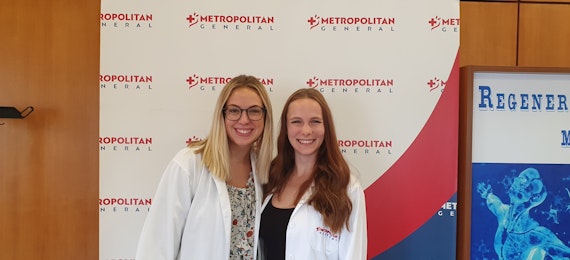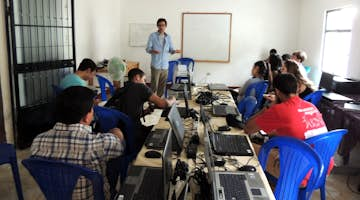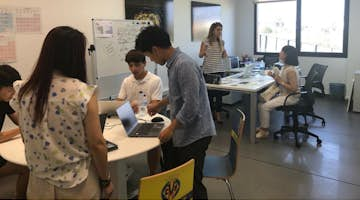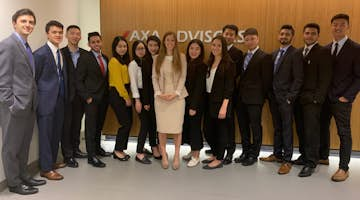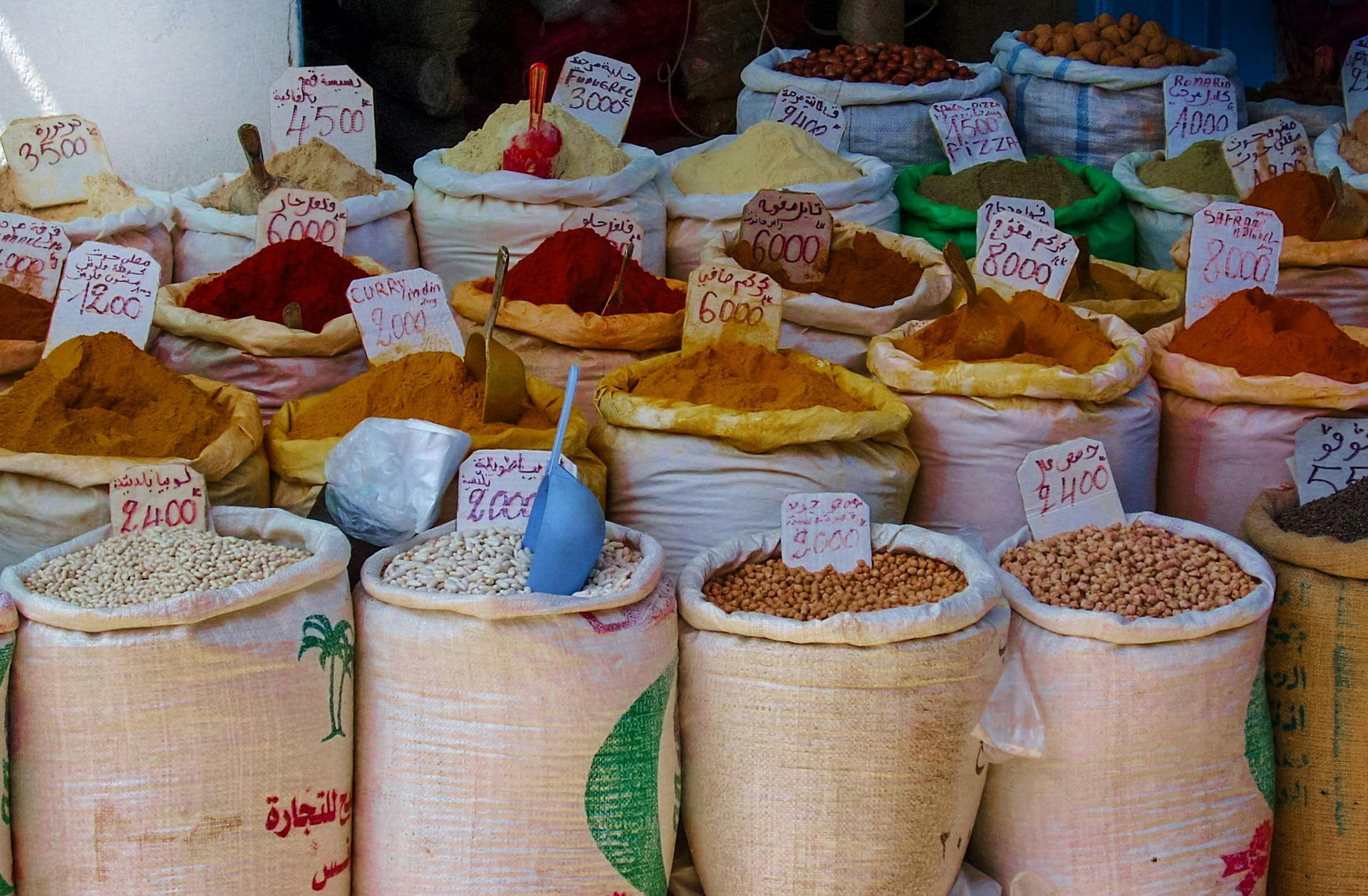
Microfinance Internships in Morocco
Gain global internship experience within one of Africa’s largest economies! Situated just south of Spain, Morocco is the point where Africa meets Europe. Given the highly diverse culture, including migrants and expats, there are a large number of associations working to improve the socioeconomic conditions of vulnerable populations, through income-generating activities. Microfinance interns in Rabat have excellent contribution and learning opportunities, to support diverse enterprises, promote economic integration, and gain insight into financial developmental projects which balance economic, social, and environmental factors.
What to expect from your Microfinance internship:
- Build a diverse cultural perspective to enhance your global awareness.
- Connect with financial advisors who can support professional development.
- Gain insight into the provision of capacity building services for small businesses.
- Learn how microfinance support helps to inform finance and business strategies.
- Develop an understanding of real-world challenges which impact entrepreneurship.
Your internship abroad host organization:
- Microfinance organizations and associations
- NGOs
Internship details
Intern with diverse microfinance organizations, which strive to advance the socio-economic status of others. Interns with a desire for entrepreneurship, finance and economic development have excellent opportunities to enhance cultural intelligence, while learning through real-world experience.
Please note that this is a French-speaking internship. You can check out other finance internships, if you’re looking for an English language speaking opportunity.
This is an in-country internship, with accommodation provided. You can explore remote Accounting & Finance internships, if you are looking for an internship program that you can undertake from home.
Intern with diverse microfinance organizations in Rabat, Morocco, which strive to advance the socio-economic status of others! Microfinance organizations address complex challenges, related to sustainable development and economic integration. Primarily, actions within the field of microfinance involve:
- Assisting the entrepreneurial development of vulnerable populations, though providing the support and resources needed to launch their income-generation projects.
- Providing training and capacity building opportunities, which build the skills and knowledge needed to succeed.
- Ensuring that mentorship is available to clients, at all stages of their entrepreneurial development (before, during and after).
- Developing promotion and communication content for increased advocacy, outreach and community development (for example, workshops, seminars, meetings, etc.).
- Investing in building and strengthening relationships, to support clients with their efforts and promote inclusion.
Interns should come with a flexible, adaptable and communicative mindset, prepared to assist as needed and provide support under local direction. The nature of the tasks you’re engaged with during a microfinance internship will be influenced by your own skills, interests, and level of experience, while also considering current project and client priorities. This is a great experience for learning and using initiative!
In all cases, interns should expect that the first week of your experience will focus on settling in and gaining some introductory knowledge, as you will not “hit the ground running”. Rather, you should start with learning about the placement to gain an understanding of what you can build upon, develop, learn, and contribute. Ensure that you ask questions and provide feedback during the introductory period, so that your supervisor understands how you’re progressing. This will help them to better understand important details, such as how quickly you learn, what you find challenging, what you find interesting, etc.
Understand and expect that individual internship experiences vary, as the specific placement that you’re assigned will depend on review of your resume and your current level of studies and experience. Therefore, if you’re at a more introductory level, you should reasonably expect a more introductory internship. Likewise, if you’re interning for a shorter duration, you will have a different experience from someone who is interning for a longer duration. Placement preferences are considered but always subject to availability.
Typical Schedule
-
Approximately Monday to Friday, 9am - 5pm.
What are the career benefits of interning abroad as a Microfinance Intern?
Microfinance interns learn from a qualified and experienced supervisor, and can be involved in:
-
Strategies related to business innovation, planning, and KPIs.
-
Guidance for clients related to marketing and accounting requirements.
-
Assistance with consultation and budgeting services for clients.
-
Workshops and mentorship which provides resources for financial literacy education.
-
Assistance with reporting and analytical tasks.
-
Organization communications related to advocacy and outreach.
Professional development opportunities:
-
Build culturally and linguistically diverse mentorship and communication skills.
-
Improve your French and Arabic language skills.
-
Gain insight into real-world socioeconomic challenges.
-
Develop an understanding of how microfinance organizations promote income-generation.
-
Gain practical skills and boost your employability, with guidance from RISEWAY’s Experiential Learning Curriculum to support your learning and cultural intelligence.
Are you eligible for this internship?
Submit a free application so we can confirm your eligibility and check availability for your preferred dates.
Not sure which program to join?
Morocco photo gallery

Academic credit available for all internships
Get course credit from your college or university while completing your internship abroad or a remote internship program. It's a great way to meet your academic requirements and gain valuable experience at the same time.
Learn about course creditProgram fees
Applying for our Microfinance Internship is completely free! The support package covers the assistance we provide in finding your internship and arranging your living accommodations in your host country, ensuring you thrive during your program.
Please note that a deposit of US$499 is required to confirm your place. The remaining balance (minus your initial US$499 deposit) is due at least 60 days before your internship start date.
Duration |
Program Fee (USD) |
|---|---|
| 4 weeks | $2,184 Equivalent to $78 /day |
| 5 weeks | $2,534 Equivalent to $72 /day |
| 6 weeks | $2,884 Equivalent to $68 /day |
| 8 weeks | $3,584 Equivalent to $64 /day |
| 10 weeks | $4,334 Equivalent to $61 /day |
| 12 weeks | $5,034 Equivalent to $59 /day |
| 16 weeks | $6,459 Equivalent to $57 /day |
| 20 weeks | $7,884 Equivalent to $56 /day |
| 24 weeks | $9,334 Equivalent to $55 /day |
- Airport pick-up
- Daily breakfast and dinner
- Accommodation
- 24/7 in-country support
- Program orientation
- Dedicated support before, during, and after your internship
- In-country guidance for social and tourist activities
- Sourcing and securing your internship placement
- Personalization of your internship plan
- Coaching from your supervisor
- Documented portfolio of your experiential learnings
- Academic credit facilitation
- International reference letter
- Certificate of Internship Completion
- Lunches
- All in-country transportation
- Visa (if required), flights, travel insurance (mandatory), vaccinations, criminal background check
- Transfer back to the airport at the end of your internship program
- Personal spending money for snacks, drinks, public transport, laundry, and leisure activities during your free time.
- A deposit of $499 (approximately 499) is required to secure your internship
- Balance of your Program Fee is due 70 days before your internship start date. The Program Fee payment can also be completed in installments through our Zero-Fee Payment Plan. Learn more.
- All payments attract a 5% transaction fee to cover international banking fees and currency charges.
- Terms and Conditions apply.
Language lessons
Fluency in Arabic (or other languages spoken in Morocco, such as Berber, French and Spanish) is not a requirement for all of the internship options in Morocco. However, some of the internship programs do require French language proficiency. Please ensure that you check the eligibility requirements for your chosen internship, to check this carefully.
Arabic and French language lessons are available for those who wish to take classes in conjunction with their internship. The program is designed in a way that enables you to intern and learn! For example, French and/or Arabic classes can be taken in the evening, after you have finished your internship schedule. These language lessons are highly recommended, as they provide interns with enriching insight into Moroccan culture, while also increasing your engagement with your internship host organization.
The language curriculum includes Modern Standard Arabic, Colloquial Moroccan Arabic, as well as calligraphy. All language courses are compatible with the National Standards set forth by the American Council on the Teaching of Foreign Languages.
Lessons are coordinated directly through our team in Rabat and can be confirmed in advance, or once you’re in-country. One-on-one intensive lessons are also available for those in need of a flexible schedule.
Weekends and travel
During the weekends, free time is available to relax, engage in tourism activities and explore other parts of Morocco. Our internship hosts in Rabat have the best advice and know all the tricks for getting around and making the most out of your time. They are happy to help you coordinate cultural excursions - whether it’s participating in a traditional cooking class, trying your hand at Moroccan pottery or taking part in a tour of the Royal Palace, Medina or Hassan Tower.
When you’re ready to get out of the city and explore the country’s beauty further afield, you won’t be disappointed by a visit to Casablanca, which sits just over an hour away from Rabat. With one of the world’s largest mosques, cosmopolitan food scene and vibrant markets, Casablanca is the perfect destination for a day trip.
Then of course there’s Marrakesh, famed for its shimmering colors, oriental smells and breathtaking architecture, the city hums with excitement and energy. Just 3 hours from Rabat, you can easily spend the weekend wandering its streets, exploring markets, museums, palaces, gardens, cuisine and more!
There’s so much to see and do in Morocco, you’ll be spoilt for choice!
Arrival and Orientation
Internships in Morocco begin every Monday of the month. Exceptions may be made to this when start dates are shifted to avoid public holiday disruptions or closed when the program has already reached capacity. Interns may choose to spend a minimum of 4 weeks, up to a maximum of 24 weeks. Airport pick up and accommodation are included in the Program Fee.
- The accommodation is covered from the Sunday night before the Monday start date - interns are required to arrive no later than the Sunday before their Monday start date, as all orientations are held on Mondays.
- The typical port of entry is the Salé Airport (or Rabat–Salé Airport - RBA). This is an international airport located in the city of Salé, approximately 30 minutes drive from Rabat (Morocco’s capital). Pick up from this airport, or the Rabat Ville Train Station, is included in the cost of the internship Program Fee. Upon arrival, interns will be met, greeted, and transferred to the accommodation.
- The last night of the accommodation is calculated according to your arrival date. For example, if you arrive on the Sunday night before your Monday start date, then you would depart on the Sunday of your last week. If you arrive earlier, on the Saturday, then you will check out on the Saturday of your last week.
- Return transportation to the airport is not included in the internship program fee.
- Extra nights of accommodation can be arranged in advance, if requested, and are subject to availability.
If you are planning to spend time independently in Morocco prior to your internship and will not require an international airport pick up, we can discuss alternative arrival logistics with you. For example, travelers may also enter Morocco via the Mohammed V International Airport, in Casablanca, or the Marrakech Menara Airport. It is possible to travel by train from either of these alternative airports and receive a pick-up service from the Rabat Ville Train Station.
Orientation covers important details for your internship, including introductions, information about culture, customs, rules, expectations, safety, language lessons, cultural excursions, and more. Your specific internship placement orientation will follow the general orientation, as you’ll be shown how to travel to and from your internship and be introduced to the team you’ll be joining.
Please note that all participants are advised not to book flights until they have first registered to confirm their internship placement.
Check what's required to visit Morocco
Check out the widget below to learn about the visa requirements for the Microfinance internship in Morocco, based on your country of residence.
Accommodation and WiFi
All interns in Rabat are accommodated together in a traditional Moroccan Riad. A Riad is a rectangular shaped home made up of multiple floors, all of which surround a central courtyard or interior garden.
Note that there is no air-conditioning or fans in riad accommodation. However, Moroccan riad architecture is typically designed with a hotter climate in mind. The thick walls and open central courtyard help with ventilation and cooling. Bedrooms usually do not have windows that open to the outside and this is specifically intended to help regulate temperature, as it prevents unwanted heat from entering. The summer months are from late June to early September. During this season, the hottest temperatures in Rabat usually peak in August, with an average high of 80°F and low of 66°F (27°C and low of 19°C). If you are sensitive to the heat, you may consider joining this program during cooler months.
Living is safe, clean and comfortable. In most cases, interns can expect to share a bedroom with up to 4-6 other participants, of the same gender. Private bedrooms are not available. While bedroom allocations are single-sex, the accommodation itself is mixed gender. Common and social areas are shared between genders. Interns are welcome to use the courtyard for relaxing and eating their meals.
WiFi is provided. Laundry services are not included but accommodation guests can access independent local services (outside the accommodation), for clothing to be washed, dried and ironed. Expect to budget approximately US$7 per load of 7 kilos.
Bathrooms are shared and toilets can be accessed by diverse genders. The accommodation has western-style toilet installations. Note that the toilets are equipped with a bidet shower, which is common use in Morocco. Water is used instead of, or together with, toilet paper, for hygiene purposes. Given that most Moroccan toilets do not always contain toilet paper, all interns are advised to ensure they prepare to source their own throughout time spent in this country. It can be purchased in-country, very affordably, at an estimated cost of US$4-8 per month.
Centrally located within Rabat’s Medina, the majority of interns can expect their placements to be within walking distance - just 10-20 minute walk from the Riad. This convenient arrangement is made to simply reduce any commute time required via public transportation, as much as possible. In the event that a commute is necessary (to either the internship placement or to the central office) then the travel time is usually between 15-20 minutes. There are ample public transportation options to utilize, such as buses and taxis.
Please note that the bedrooms pictured in the photo gallery of this webpage are provided as an example. Since there is more than one bedroom within the shared Riad accommodation, the exact room you’re assigned may differ from the photos. However, you can expect a similar standard and similar amenities, to what is shown here.
Meals
Internships in Rabat, Morocco include two meals per day - daily breakfast and dinner - prepared and served by a cook, at the riad accommodation. Breakfasts are usually served around 8:30am and dinner around 7pm.
Please be sure to let us know of any specific dietary requirements that you have in advance (i.e. allergies and intolerances), so that we may ensure your hosts are aware and can make recommendations to you accordingly. Note that gluten free products and alternatives (such as gluten free breads, cereals, cookies, etc) are difficult to source in Morocco. If you have any dietary restrictions, you should come prepared to discuss this with the team in-country and budget to supplement the meals that will be provided to you.
A weekly budget of approximately US$100 should be sufficient for covering weekly lunches, while also having extra for the particular snacks, treats, and drinks that you might want. Tap water is not drinkable. Bottled water is readily available and you should budget approximately US$10-15 per week for this. Keep in mind that personal budgets can vary enormously, according to individual spending habits and lifestyle choices.
You’ll likely find the included meals to be different from what you’re used to eating at home. Spices are used extensively.
Typical Moroccan breakfasts may consist of items such as bread, pastries (or a Moroccan pancake topped with honey), spreads, fruit, tea and coffee.
For dinner, typical dishes may be served in a tagine, such as beef, with vegetables or legumes, or chicken, with potatoes and olives. Meals served will feature in-season salads and vegetables, and might also include sides of eggs, breads and couscous. Fresh bread is served with many meals and bakeries are common.
Mint tea is popular, being served with meals, throughout the day, and as a gesture of hospitality to guests (it may be considered impolite to refuse it).
Note that pork is not consumed and alcohol consumption is absolutely forbidden within the internship riad accommodation and will not be permitted.
Ramadan:
Tourism and internship activities continue during the Ramadan period in Morocco, so you can still intern in Rabat during this time.
Ramadan (the ninth month of the Islamic calendar) is observed by Muslims around the world. During this holy month, there is a focus on prayer, reflection and community, in addition to fasting. Many adult muslims will abstain from eating and drinking, from sunrise to sunset.
These rules do not apply to visitors or non-Muslims and you can eat and drink as normal. However, you should avoid eating and drinking in public, during the fasting hours. The local eateries which cater to locals won’t be open during the day. However, the international chain restaurants, hotel restaurants, and other eateries that market to tourists will remain available. You may also need to visit a local grocery store or convenience shop to purchase snacks and drinks for your lunch meal, which you’ll be able to carry in your daypack and consume where it’s appropriate.
The timing of Ramadan varies every year, since its dates are determined by the lunar Islamic calendar. It lasts between 29-30 days. The holiday of Eid al-Fitr marks the end of Ramadan and the beginning of Shawwal (the next lunar month).Eid celebrates the end of this fasting period. The approximate dates for 2025 are beginning the evening of March 1st and ending between March 31st - April 2nd.
Essential country information
| Capital | Rabat |
| Population | 36.91 million |
| Languages | Arabic and Berber |
| Currency | Moroccan Dirham (MAD) |
| Time zone | UTC±00:00 |
Weather and climate:
Morocco’s climate varies considerably across the country’s northern to southern areas. This includes Mediterranean and sub-Mediterranean zones (along the coastal regions and lowlands), Continental climates (within the mountainous regions and central part of the country), Alpine (in the mountains, where you can also find ski resorts), and Semi-Arid (in the south of the country, where rainfall is much lower).
In Rabat, where the internship program is based, the climate is Mediterranean. This means that you can expect warm to hot dry summers and mild, damp winters. The nights are always cool, so you need clothing that you can layer as the temperature drops.
The summer months are considered to be from late June to early September. The hottest temperatures of the year (in Rabat) usually peak in August, with an average high of 80°F and low of 66°F (27°C and low of 19°C).
The cooler season begins in December and lasts through till early March. During this time, it usually does not get any colder than an average low of 47°F and high of 63°F (low of 9°C and high of 17°C). The least amount of rainfall in Rabat is recorded from early May through till early October.
Cultural events are held year-round. During the summer time, you can find music festivals usually held from May through to June. There are often events in the autumn, such as film festivals.





















































































